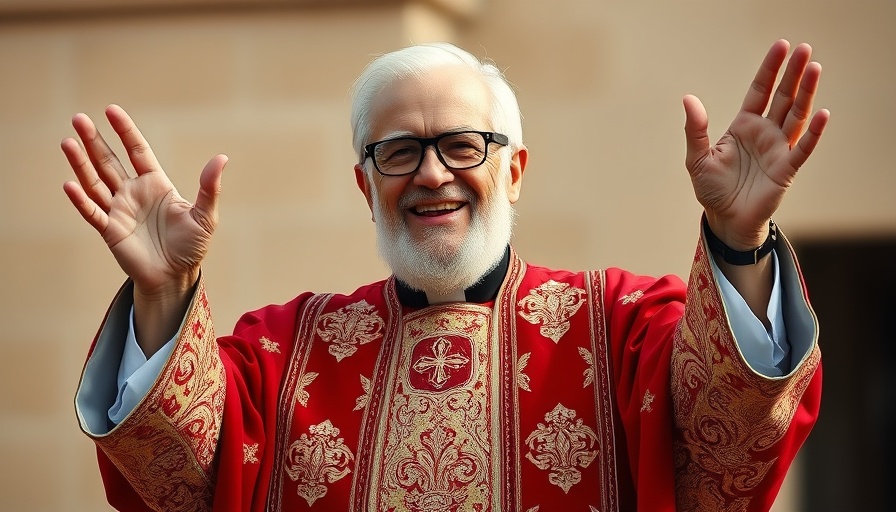
Pope Leo XIV: A New Chapter for American Catholics
On May 8, 2025, the announcement of Robert Francis Cardinal Prevost as the first U.S. native pope, under the name Pope Leo XIV, has sparked excitement and hope among the people of El Paso. This pivotal moment is seen not only as a historical milestone but also as an opportunity for renewed focus on compassion and social justice, themes deeply embedded in the message of Pope Francis.
Connection to El Paso's Immigration Mission
Pope Leo XIV shares a profound connection with the local community through his relationship with Bishop Mark Seitz of the Diocese of El Paso. As the bishop of a border community that faces unique challenges, Seitz is optimistic about Leo’s understanding of immigration issues. Having invited Seitz to Rome to discuss immigration ministry, it is expected that Leo's papacy will continue to emphasize the church's mission to support vulnerable populations.
A Heartfelt Message for the Displaced
During his introduction from the balcony of St. Peter’s Basilica, Pope Leo delivered an inspiring message in both Latin and Spanish, stating, "Evil will not prevail. We are all in the hands of God." This declaration resonates powerfully in a region characterized by diverse cultures and a population that includes many immigrants seeking refuge. Organizations like Estrella del Paso celebrate this message, hoping Leo will be a steadfast voice advocating for the dignity of migrants.
Continued Hope Amidst Challenges
As quotes from members of the faithful demonstrate, many El Pasoans feel a sense of amazement at the selection of an American pope. Remarks from parishioners reveal a mix of shock and hope regarding Leo's commitment to serving society’s marginalized individuals. This sentiment is crucial in an era where many face hardship due to socio-economic conditions or displacement.
Looking Ahead: What to Expect
Pope Leo XIV's history in Peru as a bishop has instilled in him a commitment to outreach and service. As he leads the Catholic Church, his past experiences will likely mold his approach to tackling issues of poverty, violence, and migration across the globe, including right here in El Paso.
Many are hopeful that his tenure will embody a beacon of hope not only for Catholics but also for all looking for a voice in a complex and often chaotic world. As we embrace this new era in the Catholic faith, the call for peace, justice, and mercy remains more relevant than ever.
 Add Row
Add Row  Add
Add 




Write A Comment